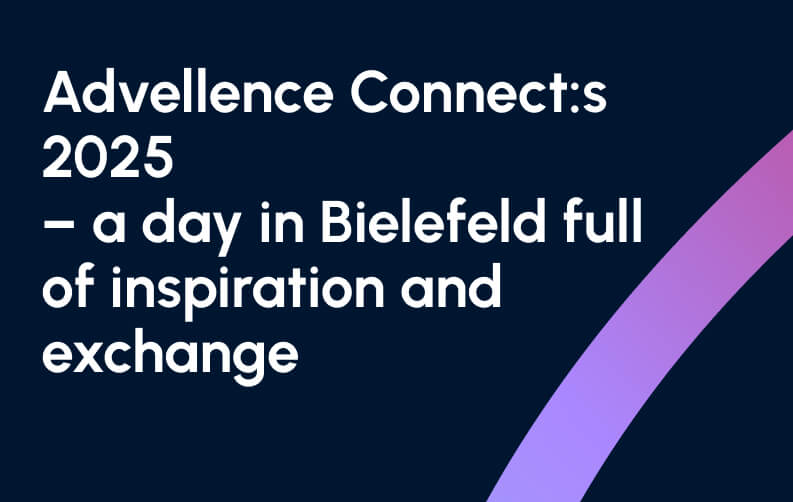October 13, 2022
AI in marketing
Artificial intelligence (AI) is described by marketing experts as “the technology of the future” because it has the greatest potential to increase ROI (return on investment). Many believe that AI will have a bigger impact on marketing in the long term than the invention of social media.

Artificial intelligence (AI) is described by marketing experts as “the technology of the future” because it has the greatest potential to increase ROI (return on investment). Many believe that AI will have a bigger impact on marketing in the long term than the invention of social media. There are several ways in which intelligent algorithms can be used. It is conceivable that artificial intelligence will be able to produce content independently in the near future – with the highest conversion rate for the target demographics. The innovation also relieves customer service employees. It receives inquiries 24 hours a day, 7 days a week and, as a chatbot, provides quick answers in the customer's language.
As these examples show, learning algorithms can improve consumer interaction throughout the life cycle. In certain areas, they can already partially replace human tasks. Artificial intelligence helps to make the complex interrelationships of marketing manageable. However, if you want to use self-learning algorithms, you need an integrated data infrastructure.
The many faces of AI
The enormous potential of artificial intelligence in marketing is undisputed: According to studies, 60 percent of customers want AI for a better customer experience. Intelligent algorithms use data collected using other techniques to perform automated consumer analysis, segmentation, and targeting.
AI can improve marketing activities across the customer life cycle by automating them. In many cases, however, their use requires the development of end-to-end consumer data in a system that integrates multiple data sources.
Build an understanding of AI – even in marketing
Artificial intelligence is trying to simulate human-like intelligence with the help of technical options. In order to be able to replace a person in part of their work, a machine must be able to learn. Neural networks, for example, are used by developers to imitate the functions of the human brain. However, with artificial intelligence, these technologies are ideal for improving productivity. By integrating with AI-based systems, it is possible to conduct conversations with customers in natural language format, generate presentations in natural language, and identify information in every area of the consumer life cycle in real time. While these technologies have not yet fully exploited their potential, a decisive factor will be the accuracy of the results.
In today's data-driven marketing, the focus is on analyzing consumer data and developing the most appropriate marketing methods. This is shown by studies of current trends in marketing metrics and new technologies as well as in the evaluation of ROI: 29 percent of marketing professionals use AI in their company. Compared to last year, this represents an increase of 44 percent. Respondents confirm that artificial intelligence can already be of great help in almost all areas of marketing: More than half attribute a significantly positive ROI to the use of AI.
Examples of applications of artificial intelligence in subtasks of marketing
- Chatbots for customer inquiries about buying advice and service
- Predicting customer journeys
- Real time bidding to manage online advertising in real time
- Personalized shopping recommendations
- Personalized search results
In all of these areas, real-time availability around the clock is the great strength of intelligent automation. If telecommunications and the Internet have already removed the space barrier a long time ago, the time barrier has now fallen. On a larger scale, AI helps marketing decision makers allocate their budgets. Which marketing channel should be used with which focus? These questions are answered by artificial intelligence, which analyses the wealth of available consumer data from a variety of source systems. The more precisely algorithms can determine the value contribution of individual channels and interactions with the amount of available data, the better. The digital marketing assistant uses this information to create a comprehensive plan. At the same time, AI helps with current and future budget planning.
AI in marketing
When using intelligent algorithms, the focus is on service. This can be interpreted in many ways: Exactly segmented customer groups and their differentiated approach ensure that customers only receive information from a company that represents added value by responding precisely to the customer's interests and needs.
Intelligent automation – a practical example
Think of communication with the buyer of high-quality men's shoes on a phased basis. Shortly after the transaction, the customer receives a personalized offer for care products that match the material and color of the shoes. From the upcoming winter collection, an algorithm can suggest exactly the new shoe models that suit the customer's taste. With every purchase, the customer profile is updated and gains precision with new data. You can use the offer of an in-house repair service as a hook for resuming contact. Since this works entirely without human activity, there are two positive effects: You strengthen customer loyalty through the increased relevance of communication and at the same time can use the manual work of your marketing team more productively. But despite all efforts to increase efficiency through automation, personal contact from person to person still represents important added value.
Introducing AI to the company
Many companies and marketers still find it difficult to implement the use of artificial intelligence in their organization and to use it as a central part of the evaluations (keyword performance marketing). In order to convince internal stakeholders, a use case with practical relevance is needed, in which adaptive algorithms can demonstrate their potential. You can start where many marketing experts already see significant room for improvement: With the productive use of customer data. For example, use customer data from a loyalty program or the CRM (customer relationship management) system to derive customer segments from this. Artificial intelligence does not keep a static description of customer groups, but expands and clarifies them over time with every new interaction. Check whether differentiated processing of the identified segments improves the ROI of the selected channel or customer segment.
In the retail sector, it is possible to remind occasional customers of your company via online advertising media. Regular customers are offered a referral offer to strengthen loyalty and generate new leads. Formerly loyal and profitable customers can be won back in a targeted manner via newsletter offers. Advanced AI applications draw conclusions from campaign success and learn from them to consistently increase the ROI of individual marketing tools and channels. In this way, you can increase your company's profit and turnover and make marketing a central and relevant element of the overall corporate strategy.
Strategic Advisory & Effective Execution
We continuously innovate to transform data into competitive advantage via expert advisory, effective project execution, and precision engineering.
Our Blog for Experts.
We use our expertise in various disciplines to turn data into sustainable competitive advantages for our customers and to share our knowledge.
Further News
All the latest news about Advellence







